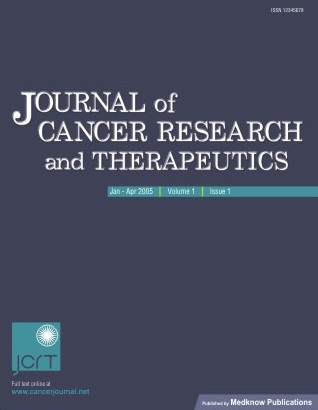
|
Journal of Cancer Research and Therapeutics
Medknow Publications on behalf of the Association of Radiation Oncologists of India (AROI)
ISSN: 0973-1482 EISSN: 1998-4138
Vol. 7, Num. 1, 2011, pp. 1-2
|
Journal of Cancer Research and Therapeutics, Vol. 7, No. 1, January-March, 2011, pp. 1-2
Editorial
Distributive justice and public private participation
Nagraj Huilgol
Chief Radiation Oncologist, Dr. Balabhai Nanavati Hospital, Mumbai, India
Correspondence Address: Nagraj Huilgol,
Chief Radiation Oncologist, Dr. Balabhai Nanavati Hospital, Mumbai,
India,
nagrajhuilgol@gmail.com
Code Number: cr11001
PMID: 21546733
DOI: 10.4103/0973-1482.80422
The mere existence becomes an ordeal under the burden of sickness and, even worse, the ennui of poverty, after paying for expensive treatment makes living a burden and life not worth living. More than 70% of Indians pay themselves for healthcare facilities. Public spending expenditure by the government is around 2% of the GDP. Healthcare infrastructure is disproportionally concentrated in the big megapolis and urban areas. The big corporates have started exploiting the unmet needs in the urban area. They have commodified illness, where patient is regarded as a client! They are addressed and treated as such! The corporate hospitals are generally beyond the ken of the poor except when those below the poverty line access the 2% quota for them. These hospitals are in the news generally for expertly dodging these enforced corporate responsibilities. India adds 26 million people every year to the pool of 1.110 billion. India has the aspiration to become economic superpower. There has been on an average a growth rate of 7% over a decade now. A new middle class has emerged. Along with the economic growth, the disease burden due to non-communicable diseases like diabetes, cancer, and cardiovascular disorders has increased. Treatment modalities of their diseases are becoming costlier by the day. The therapeutic modalities of treating non-communicable diseases are technology intensive and expensive. Rapid progress in technology demands a continual investment in healthcare. The cocktail of expensive healthcare, uneven distribution of hospitals across the country and mounting poverty leads to disparity in access to healthcare, which begs the question of distributive justice. Distributive justice in healthcare is the extension of the ideals of social justice. Social justice generally refers to the idea of creating a society or institution that is based on the principles of equality and solidarity, that understands and values human rights, and that recognizes the dignity of every human being (Wikipedia). The idea of justice is ingrained and understood by all of us very intuitively. In its simplest form, a just act is that which one extends to others, and that which they would like to be extended to oneself. Thus, access to healthcare for all becomes a just need and a demand. However, the economic realities do not allow a uniform distribution of healthcare, particularly in a populous country like India. Access to healthcare is still not deemed as a basic right. Libertarian concept of justice has an emphasis on life, liberty and property. Thus, libertarians view social welfare thus: "Providing for the welfare of others who cannot or will not provide for themselves is not morally justifiable function of government" (Mappes and DeGrazia). The libertarians assume that the individuals who are the masters of their bodies and talents can trade in open market their body and talent to gain equity and wealth. It is assumed by the libertarians that it is wrong of anyone, including the government, to confiscate any of wealth gained in the market place to subsidies others. In contrast, socialist view is more egalitarian. Socialists believe that any imposition or restriction of individual liberty to promote equality is justified. Liberals advocate institutions to ensure basic liberties while providing for the basic needs of the most underprivileged. Rawlsian liberalism also believes in inequalities if it benefits everyone in the society, especially the most disadvantaged. Affirmative actions in education in India illustrate this concept of Rawl. The idea of basic needs in healthcare delivery like in any other area of human needs is difficult to define. It gets even worse in the area of oncology, where novel drugs are touted as miracles even when the survival benefit is a month or two after paying a humongous amount of money to procure the treatment. There is an urgent need to procure the treatment needs of the millions who do not get even a preliminary treatment. There is an urgent need to debate the unmet needs of the millions who do not get even the preliminary treatment in countries like India and China, which are aspiring to be superpowers in the decades to come. Currently, the public sector hospitals in India, arranged in a pyramidal structure of hierarchy, are poorly equipped and funded. The big tertiary hospitals are flooded with patients from various parts of the country. The corporate hospitals and other private hospitals and nursing homes are expensive and cater to a small affluent section of the society. This unholy cocktail of systems and structures has kept more than 25 million people out of a reasonable healthcare. India is a social republic. Yet, the governmental expenditure on healthcare is miniscule. Various projects like Rajiv Gandhi Arogyasri Yojana of Andhra Pradesh or Vajpayee Arogyasri Kisan Yojana in Karnataka are half-hearted measures to address the unjust distribution of access to healthcare in our country. In fact they have led to many corrupt practices like increased frequency of needless hysterectomies and high-end treatments like IGRT. There are private hospitals with surplus infrastructure. An efficient public-private partnership can utilize the excess human and material resources at reduced costs. Pharmaceuticals can reduce the profit margins. Doctors in the private structure can devote part of their time for free or concessional treatment. These views I am sure will not be endorsed by libertarians, but let us look at the larger picture. Can we all empathize that man who, deprived of treatment, is dying in pain?
Copyright 2011 - Journal of Cancer Research and Therapeutics
|
